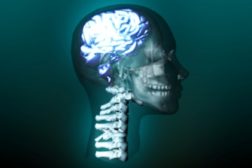Home » mental health
Articles Tagged with ''mental health''
Effort wins European Union Healthy Workplaces Good Practice Awards 2014 – 2015
Read More
Daimler AG, Germany:
Towards inner stability — reduced absenteeism and increased work satisfaction in the manufacturing sector
Effort wins European Union Healthy Workplaces Good Practice Awards 2014 – 2015
April 29, 2015
American Psychological Association to recognize psychologically healthy workplaces
American Express is tops
March 12, 2015
Become a Leader in Safety Culture
Build your knowledge with ISHN, covering key safety, health and industrial hygiene news, products, and trends.
JOIN TODAYCopyright ©2025. All Rights Reserved BNP Media.
Design, CMS, Hosting & Web Development :: ePublishing







